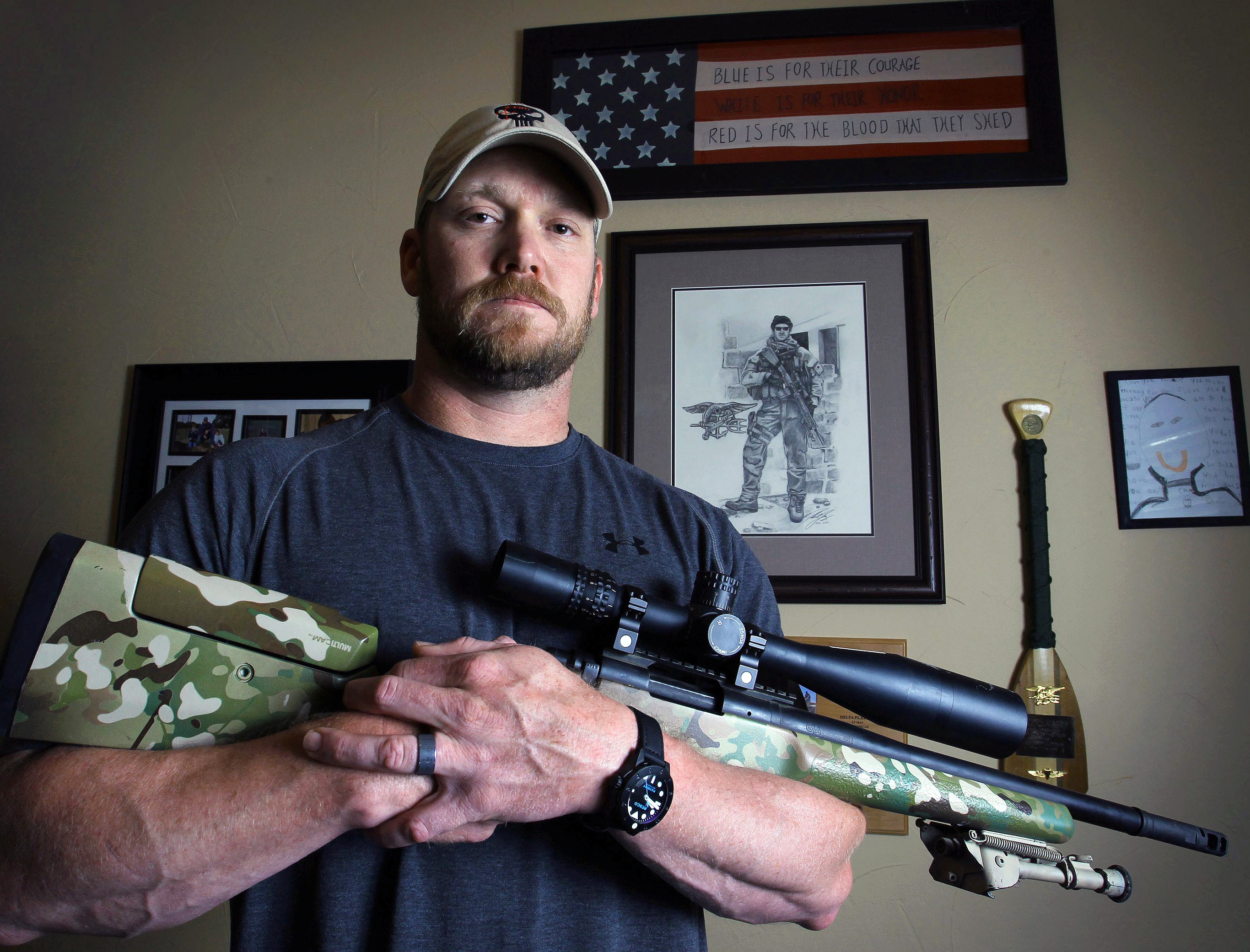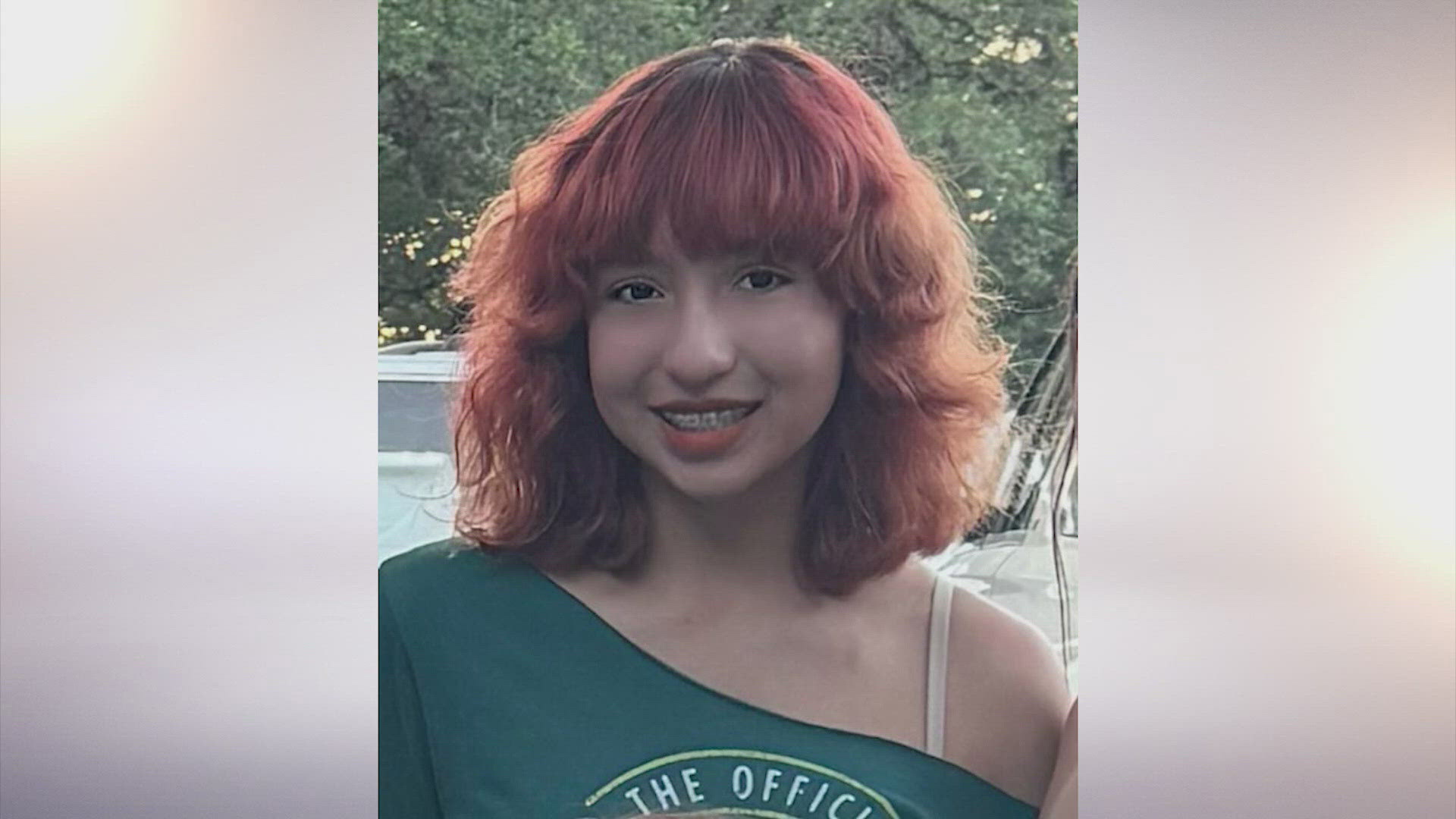WASHINGTON — Citations for two Navy Crosses and more than 100 Silver Star medals awarded secretly to Navy SEALs and a Marine for “extraordinary heroism” in the last 15 years reflect the fierce battles that have been fought in Iraq and Afghanistan, according to records obtained by USA TODAY.
The Navy decorated the Marine for saving the lives of civilians in Benghazi in September 2012. Several SEALs earned theirs for intense combat in Ramadi, others for rescuing hostages in Afghanistan. The Navy also honored the deadly efficiency of the “American Sniper,” the late SEAL Chris Kyle.
Almost one in five of the military’s most prestigious honors in all the services have been awarded privately since America went to war in 2001 because the missions were classified. The Medal of Honor is the highest commendation, followed by service crosses and the Silver Star. In February, the Pentagon announced plans to review more than 1,000 of the nation’s top awards bestowed since 9/11 to determine if they should be upgraded. The secret Navy Crosses and Silver Stars are among those under review, along with a similar number issued for the Army’s classified commando missions
"Awards and medals have a sacred role in military culture," said Brad Carson, the Pentagon's former civilian chief for personnel who advocated for the review. "They are a small ribbon symbolizing enormous sacrifice. It is important that we recognize service members for their heroism. And after 15 years of war, it is appropriate to review awards to make sure we applied the criteria correctly and uniformly. That's especially true when so many missions were necessarily classified and awards given quietly. That's why we pushed this review. It is about keeping faith with the troops."
The citations that accompanied the two Navy Cross and 112 Silver Star medals begin as form letters under letterhead from the Secretary of the Navy. The Pentagon withheld names to protect the service member and his family, and deletes details that could affect national security.
“The President of the United States takes pleasure in presenting the NAVY CROSS or SILVER STAR to…” The rank of the SEAL or Marine follows but the names are redacted in the documents. For those killed in action, the President “takes pride” in awarding the medal.
Next, in less than a page, come astounding feats of bravery, selflessness and will.
Two Navy Crosses, second only to the Medal of Honor, are among the Navy documents. The first, on Aug. 9, 2009, a Navy SEAL, his name blacked out like others in the report, was leading a small unit when their base came “under an intense coordinated attack” in Afghanistan. A sniper wounded the unit’s medic, and the SEAL braved direct gunfire to drag the man to safety.
At the same time, a rocket-propelled grenade smashed through the wall of the unit’s arsenal, sparking a major fire. “With a catastrophic explosion imminent,” the SEAL evacuated the base. He then ran repeatedly into the arsenal to haul out crates of explosives to uncover the “smoldering and undetonated warhead, which he removed with his bare hands.” He left the compound, making several trips to dump explosives in a nearby river, all the while being shot at.
“His repeated heroic actions and decisive leadership, under fire, saved the lives of United States soldiers and several Afghan elders and prevented the sole hardened structure in the village from being breached,” the citation reads.
Missing from the citations is any mention of SEAL Team 6 and its mission into Pakistan that killed Osama bin Laden in 2011. President Obama did provide the commandos with the Presidential Unit Citation, the highest honor for a military unit. The Navy did not rule out the possibility that individual medals were awarded.
“Due to the sensitivity surrounding the composition and conduct of the raid, and concern for the personal security of the service members involved, at this time the department cannot comment on any individual recognition,” said Navy Lt. Jackie Pau, a Navy spokeswoman.
Benghazi
The most tersely worded citation accompanied the only other Navy Cross, awarded to a Marine gunnery sergeant. His heroism on the night of Sept. 11, 2012, came amid the chaos and controversy that surrounds the attack in Benghazi, Libya, that killed Ambassador Christopher Stevens and three other Americans. A House committee continues to investigate the attack, the U.S. response and the role of Hillary Clinton, then the Secretary of State and now the likely Democratic nominee for president.
It’s possible, through the citation and congressional reports on Benghazi, to sketch out his actions that night. The citation refers to his actions “in support of Overseas Contingency Operations in Sept. 2012” but does not say where. The Navy has acknowledged that it did award a Navy Cross to the Marine for his actions that night.
A House intelligence committee report on Benghazi refers to a two-person detachment of military personnel and other security personnel who flew from Tripoli that night to rescue Americans. They arrived at the besieged compound, and within 11 minutes were under attack by mortars, rocket-propelled grenades and small-arms fire. The attack killed two and severely wounded two others. The Marine helped treat the wounded, repel attackers and organize the evacuation.
His “valorous actions, dedication to duty and willingness to place himself in harm’s way for the protection of others was critical to the success of saving numerous United States civilian lives,” the citation says.
Ramadi
In 2006, U.S.troops and al-Qaeda terrorists scratched and clawed in brutal street-by-street fighting in Ramadi, in western Iraq. "It was pretty intense urban combat," Army Lt. Gen. Sean MacFarland recalled in an interview. He commanded a brigade in Ramadi as colonel at the time and now leads the coalition fighting the Islamic States. "What the SEALs were doing in particular for us was sniper, counter-sniper operations. That was a pretty critical element of our ability to establish, first of all, our combat outposts in the city, and disrupt the enemy counterattacks against them."
The SEALs, MacFarland said, would venture deep behind enemy lines, setting up "hide sites" where small teams would await inevitable attacks on the outposts. Setting up a hide site was relatively simple, he said. Getting out, once discovered, often by children sent as scouts, could be deadly.
On Sept. 29, an insurgent threw a grenade on the roof where Michael Monsoor and two fellow SEALs had set up to protect another unit. Monsoor, who had a clear exit, chose instead to leap on the grenade, sacrificing his life for those of his colleagues, according to the citation for the Medal of Honor awarded to him posthumously. The lieutenant, who fought through “heavy enemy fire” to retrieve Monsoor and his wounded SEALs, was awarded a Silver Star in secret for the mission.
and two fellow SEALs had set up to protect another unit. Monsoor, who had a clear exit, chose instead to leap on the grenade, sacrificing his life for those of his colleagues, according to the citation for the Medal of Honor awarded to him posthumously. The lieutenant, who fought through “heavy enemy fire” to retrieve Monsoor and his wounded SEALs, was awarded a Silver Star in secret for the mission.
In all, from spring to fall in 2006, SEALs earned at least 14 Silver Stars.
Monsoor earned one of those as well, according to his Medal of Honor citation. On May 9, he “exposed himself to heavy enemy fire” to help rescue another SEAL who had been shot in the leg, according to the citation. Monsoor kept firing at insurgents while he and another SEAL dragged their wounded comrade to safety. They loaded him on a Humvee and returned to the fight.
His fellow SEAL, Chris Kyle, no doubt fired fewer rounds. But the secret Silver Star citation that belongs to him shows that in Ramadi from April 24 to Aug. 27, 2006, “he personally accounted for 91 confirmed enemy fighters killed and dozens more probably killed or wounded.”
"Chris Kyle, among them, racked up some pretty heavy-duty numbers there," MacFarland said.
The citation refers to Ramadi as the “epicenter of al Qaeda and insurgent activity in Iraq,” and Kyle’s “heroic actions, professionalism and incredible sniper skills” in seizing key areas of the city.
Over the summer of 2006, he was credited with saving the lives of U.S. and Iraqi troops with his rifle through “enemy rocket-propelled grenade and mortar teams eliminated, five enemy snipers with scoped weapons eliminated, and dozens of insurgent fighters destroyed.” Kyle was portrayed by actor Bradley Cooper in American Sniper, the 2014 movie based on his autobiography. Kyle was killed in 2013 by a veteran he had been mentoring at a shooting range in Texas.
movie based on his autobiography. Kyle was killed in 2013 by a veteran he had been mentoring at a shooting range in Texas.
"I lost about 100 soldiers, marines and SEALs in a nine-month period and hundreds more wounded, close to 600," MacFarland said. Heroism had become so commonplace, he said, that he had grown numb to it over 15 months of fighting. "I would tell you one of my biggest regrets as a brigade commander is that I didn’t push harder for more valor citations for my marines and soldiers," he said.
Hostage rescue
In February, President Obama awarded another SEAL, Senior Chief Petty Officer Edward Byers, the Medal of Honor for his acts of courage in shielding an American doctor from his Taliban captors while bullets zipped through the hideout. It was a rare public acknowledgement of SEALs' heroism, made even more unusual in that Byers belonged to SEAL Team 6, the legendary unit that killed bin Laden.
The details of the night of Dec. 8, 2012, were sketched out in the citation for Byers: Taliban gunmen cut down the lead SEAL in the team that assaulted the compound, Petty Officer 1st Class Nicolas Checque, mortally wounding him. Byers followed Checque, tackled one of Dr. Dilip Joseph's captors and held another with his bare hands, allowing another SEAL to kill the militant. Byers then leaped atop Joseph to protect him from gunfire.
"Given the nature of Ed’s service, there is a lot that we cannot say today," Obama said at the White House ceremony. "Many of the operational details of his mission remain classified. Many of his teammates cannot be mentioned."
Their names remain secret, but the citations reveal that three teammates of Byers and Cheque received Silver Stars for their "bold initiative, undaunted courage, and complete dedication to duty."
The first SEAL, the leader of the assault team, killed several of Joseph's captors, including the man Byers held with his hands, according to the citation. After the firefight ended, the SEAL organized medical evacuation for his wounded teammate, secured a landing zone and escorted Joseph to the helicopter.
Realizing Joseph might soon be killed, the second SEAL charged into the compound amid gunfire. "Displaying calm tactical prowess under fire, he immediately moved down his wall and engaged an armed enemy combatant, while calling out to the hostage." His help of Byers in protecting Joseph was "pivotal" to the rescue.
The third SEAL burst into the compound under fire and dragged out Checque for emergency first aid. He bounded back and cut down the last of Joseph's captors who was pointing a gun at Byers and the hostage. The citation credits him with saving Joseph's life and those of his teammates.


